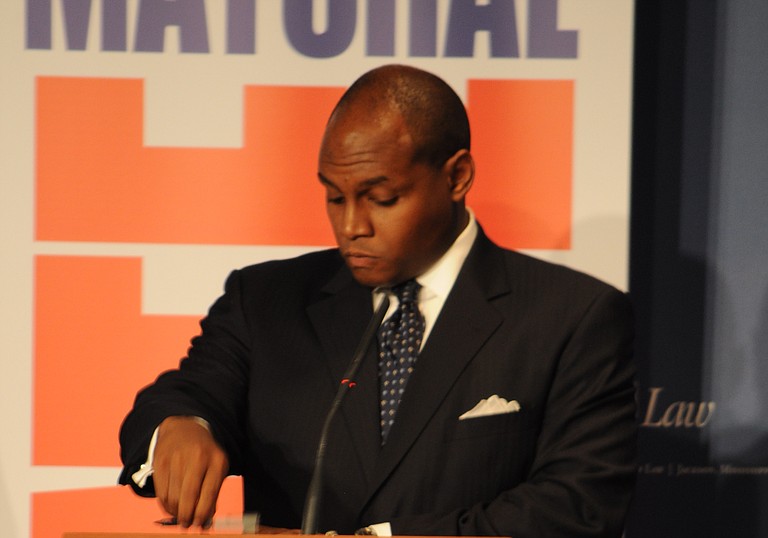A 27 percent turnout spike in Jonathan Lee’s northeast Jackson stronghold couldn’t deliver a May 21 runoff win. Trip Burns
Wednesday, May 29, 2013
Jackson may not experience a huge racial divide on a daily basis, but once or twice every four years, one day certainly sets white and black people apart: Election Day.
The May 21 Democratic primary runoff saw a huge spike in white voter turnout while black turnout held steady. But the spike's effect on the results was negligible: Councilman Chokwe Lumumba defeated businessman and political newcomer Jonathan Lee 54 percent to 46 percent.
Lee's stronghold--Jackson's predominantly white precincts--saw about a 27 percent increase in voters in this week's runoff over the Democratic primary held May 7. Overall, voter turnout increased more than 2 percent, with 32.8 percent of total registered voters casting ballots last Tuesday compared to 30.7 percent in the primary.
Businessman Lee picked up 3,314 more votes than Councilman Lumumba in six precincts--38 through 43--the same precincts he won handily in the primary. After dominating the northeast Jackson precincts in the primary, Lee did even better in the runoff. In fact, Lee captured close to 100 percent of the vote in some precincts. In Precinct 33, where only 2 percent of voters are black, for example, Lee won 91.5 percent of the votes cast on May 7 (his nearest challenger, Mayor Harvey Johnson Jr., got 6 percent). In the runoff, Lee's lead in Precinct 33 jumped to 99.2 percent over Lumumba. Similarly, in Precinct 34, where 99 percent of voters are non-black, Lee won 90.1 percent May 7 and captured 97.6 percent of the vote over Lumumba in the runoff.
That shouldn't come as a surprise to readers who followed the election. Lee ran as the "unity" candidate in the weeks leading up to Tuesday's vote with the backing of a large majority of Jackson's business community, as well as the city's Republicans. Of Lee's top 10 financial donors, a majority had given money to defeat Democratic incumbent President Barack Obama in the 2012 presidential election.
The problem for Lee was the rest of Jackson, where voters went overwhelmingly for Lumumba. Lee's opponent characterized him as a "Rankin County Republican," and even if untrue, it polarized Jackson's electorate, which is 80 percent black and solidly Democrat blue.
Turnout more or less remained level in precincts with the highest proportion of African Americans, with about 2 percent more people participating in the runoff than the primary. In those precincts, Lee slightly increased his vote totals; on average, Lee scored about 4 percent more in these precincts in the runoff.
Of the city's 90 voting precincts, only seven had a margin of victory that fell between 40 percent to 60 percent.
Lumumba wiped the floor with Lee in practically every other ward in Jackson. The councilman also garnered a lot of support in Wards 3 and 4. In precincts 18-31, which are situated in those wards, Lumumba bested Lee by 2,506 votes. The turnout improved from almost 31 percent to nearly 37 percent in those precincts, and the councilman picked up 2,155 more votes than he did two weeks ago, while Lee's numbers stayed the same or improved very little.
Lumumba polled extremely low in a survey released two weeks ago by Jackson television station WAPT. The numbers revealed that, at the time, Lee held a 14-point lead (39 percent to 25 percent) over Lumumba. A week later, one day before the election, a second poll revealed that the momentum has swung, and Lumumba trailed Lee by only 4 percent.
The election results proved both polls wrong.

Comments
Use the comment form below to begin a discussion about this content.
Sign in to comment
Or login with:
OpenID